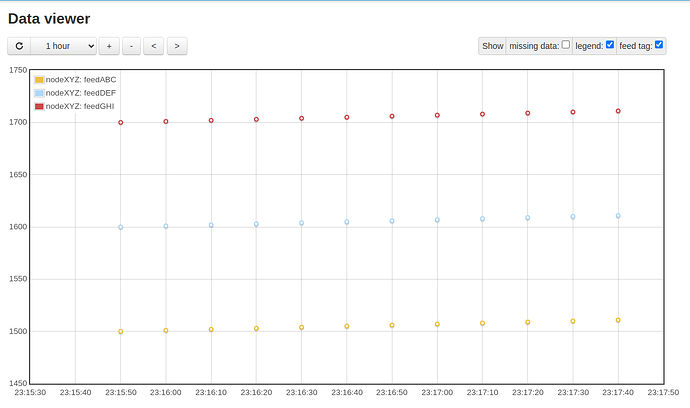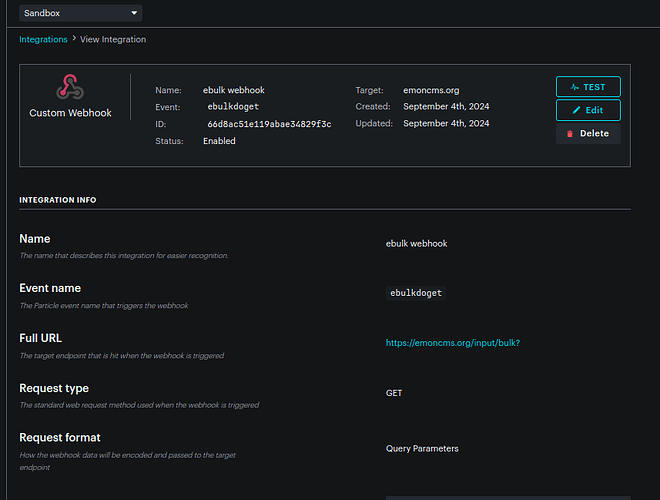I'm using a webhook to store data to emoncms.org, but logging multiple feeds from multiple devices at 10sec rate quickly exceeds my allowable data operations. I want to do bulk uploads of my data.
This URL stores 2 minutes of data from 3 different feeds at 10 sec sample rate:
https://emoncms.org/input/bulk?data=[
[10,"nodeXYZ",{"feedABC":1500},{"feedDEF":1600},{"feedGHI":1700}],
[20,"nodeXYZ",{"feedABC":1501},{"feedDEF":1601},{"feedGHI":1701}],
[30,"nodeXYZ",{"feedABC":1502},{"feedDEF":1602},{"feedGHI":1702}],
[40,"nodeXYZ",{"feedABC":1503},{"feedDEF":1603},{"feedGHI":1703}],
[50,"nodeXYZ",{"feedABC":1504},{"feedDEF":1604},{"feedGHI":1704}],
[60,"nodeXYZ",{"feedABC":1505},{"feedDEF":1605},{"feedGHI":1705}],
[70,"nodeXYZ",{"feedABC":1506},{"feedDEF":1606},{"feedGHI":1706}],
[80,"nodeXYZ",{"feedABC":1507},{"feedDEF":1607},{"feedGHI":1707}],
[90,"nodeXYZ",{"feedABC":1508},{"feedDEF":1608},{"feedGHI":1708}],
[100,"nodeXYZ",{"feedABC":1509},{"feedDEF":1609},{"feedGHI":1709}],
[110,"nodeXYZ",{"feedABC":1510},{"feedDEF":1610},{"feedGHI":1710}],
[120,"nodeXYZ",{"feedABC":1511},{"feedDEF":1611},{"feedGHI":1711}]
]
I am trying to adapt it to a situation where the node and feed labels are quite long - about 30 characters each and I will run out of space in my publish string.
Can I send something like this as my event data string:
`{
"t":10,
"n":"veryverylongnamednodeXYZ",
"f":["veryverylongfeedABC","veryverylongfeedDEF","veryverylongfeedGHI"],
"d":[
[1500,1501,1502,1503,1504,1505,1506,1507,1508,1509,1510,1511]
[1600,1601,1602,1603,1604,1605,1606,1607,1608,1609,1610,1611],
[1700,1701,1702,1703,1704,1705,1706,1707,1708,1709,1710,1711]
]
}`
And unpack the elements using Mustache notation to recreate URL like the one above?
The data sampling rate "t" is fixed.
I could fix the number of feeds and data elements but ideally they would both be variable.



